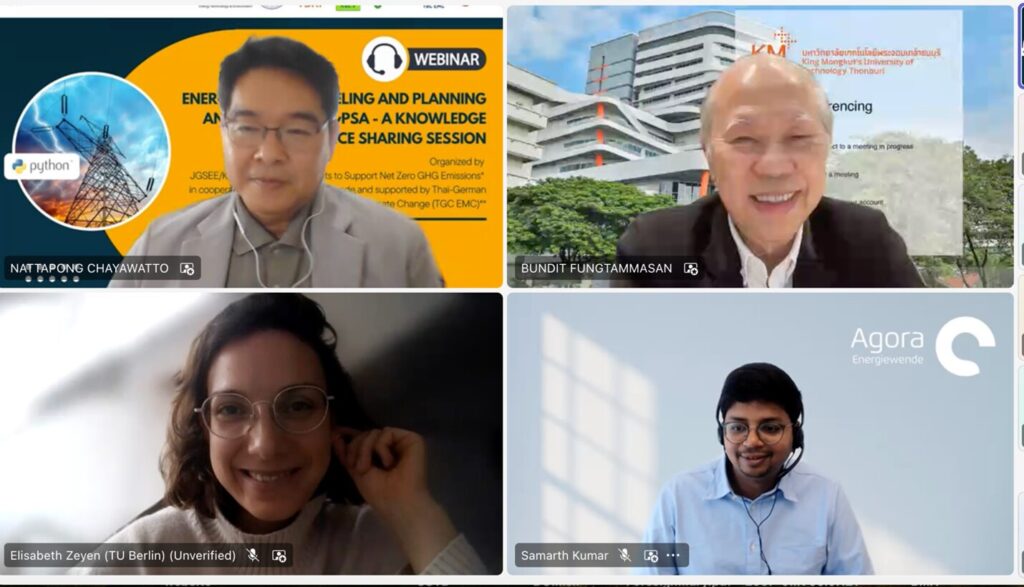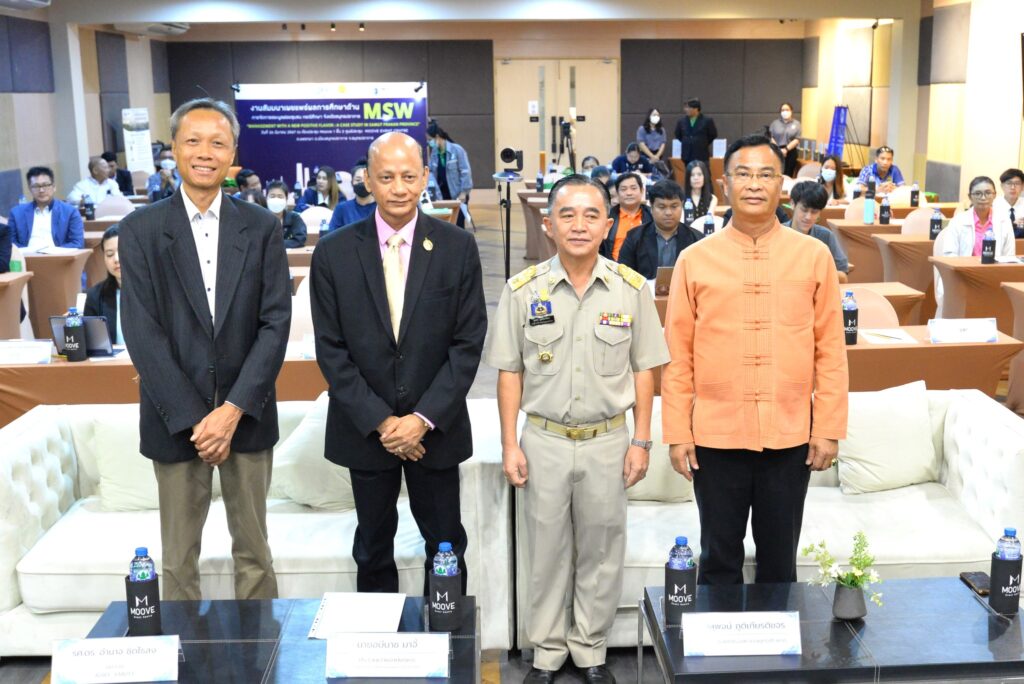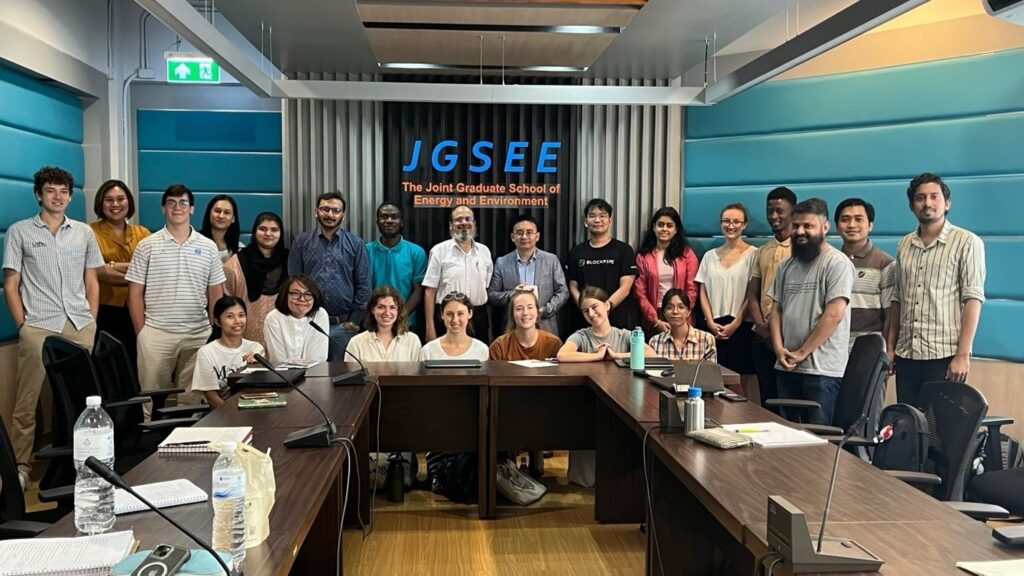On 26 September 2024, Hub Net Zero and JGSEE, in collaboration with Agora Energiewende and supported by the Thai-German Cooperation on Energy, Mobility, and Climate Change (TGC EMC), hosted a webinar focused on the PyPSA energy system modeling tool. The event featured speakers from Germany and Thailand, offering an overview of PyPSA’s modeling capabilities, user examples, and comparisons with other commercial energy system modeling tools.
The webinar was opened by Assoc. Prof. Dr. Bundit Fungtammasan, Advisor to the President for Research and Innovation at KMUTT, who delivered the introductory remarks.
The first presentation was given by Dr. Elisabeth Zeyen, a post-doctoral researcher at the Department of Digital Transformation in Energy Systems, led by Prof. Dr. Tom Brown (co-creator of PyPSA) at the Institute of Energy Technology, Technische Universität Berlin. Dr. Zeyen introduced PyPSA, explaining its key features, capabilities, benefits, technical requirements, and limitations.

PyPSA, an open-source tool designed for simulating and optimizing energy systems with high spatial and temporal resolution, is useful for grid modeling, integrating renewable energy, and electrifying transport and industry. It has been used in notable studies by leading organizations. For example, the International Energy Agency (IEA) used PyPSA to model seasonal variability and long-term storage in the World Energy Outlook 2023, while the Energy and Resources Institute (TERI) in India applied PyPSA in a government-supported study of India’s power system for 2030 and 2050. In addition, Meridian Economics, a South African think tank, has employed PyPSA in multiple reports, trainings, and scenario explorations for transparent planning.
Dr. Samarth Kumar, Project Manager at the International Energy Data and Modelling Hub of Agora Think Tanks, followed with a presentation on PyPSA’s role in developing long-term energy scenarios for Thailand. This work is part of the Clean, Affordable and Secure Energy for Southeast Asia (CASE) project, jointly implemented by GIZ and various international and local expert organizations.
The final speaker, Dr. Nattapong Chayawatto, a senior researcher at the Pilot Plant Development and Training Institute and an affiliate of JGSEE, compared PyPSA with other well-known tools like LEAP and MATPOWER, highlighting their respective strengths and limitations.
With 50 participants, including energy analysts and planning officers from government agencies, power plants, and the academic sector in Thailand and abroad, the webinar provided valuable insights into PyPSA, a powerful tool essential for modernizing Thailand’s power system and advancing the country’s journey toward carbon neutrality.



